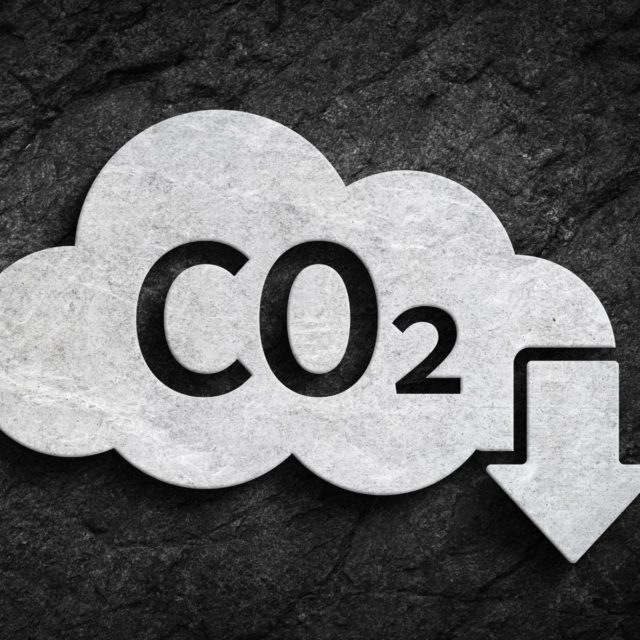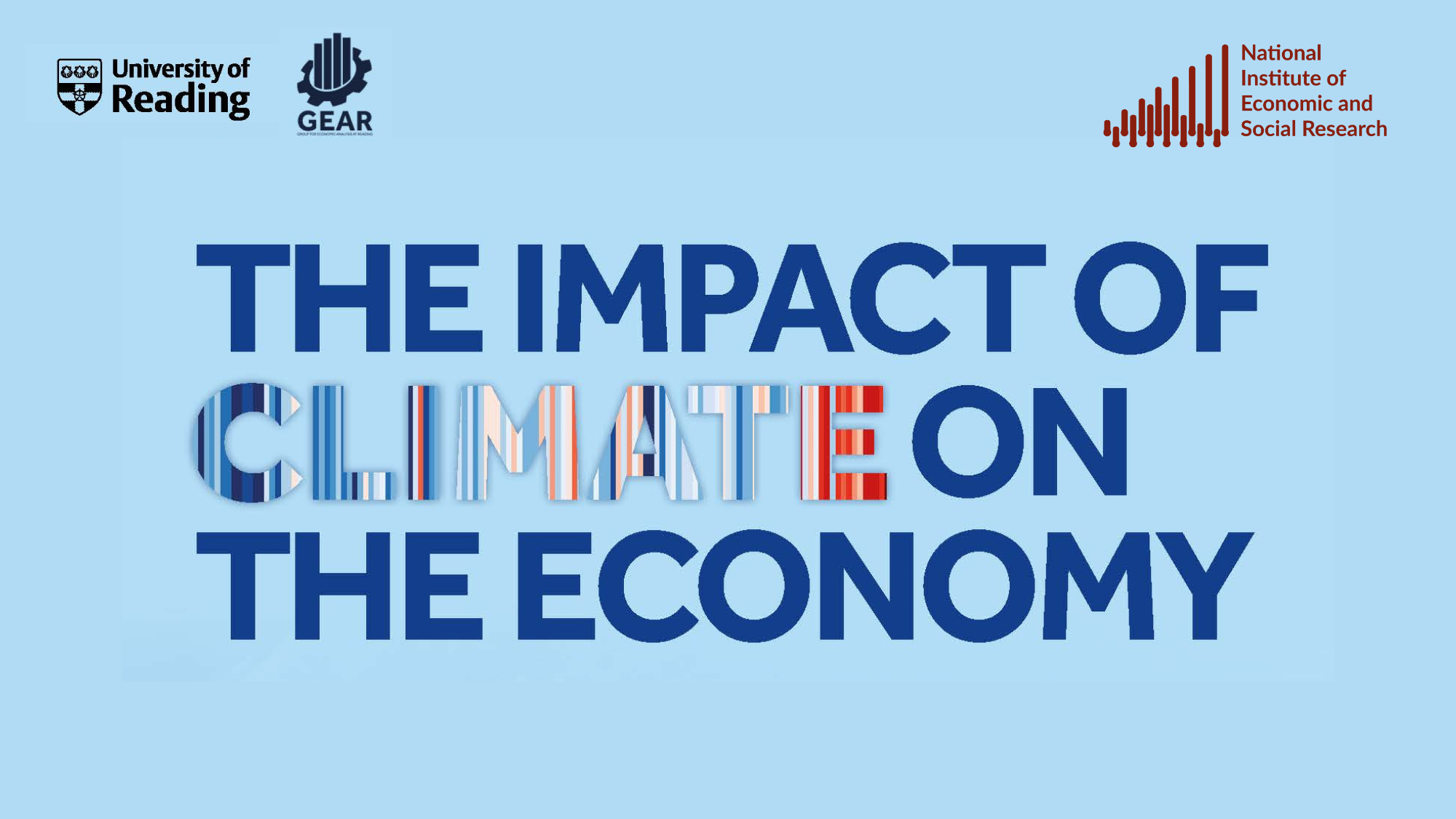Getting the UK to Net Zero: Do the Conservative and Labour Manifestos Promise Enough?
A major issue for many voters ahead of the General Election is climate change. In today’s Monday Interview, our Deputy Director for Macroeconomics, Stephen Millard, discusses some of the issues around climate change and the move to net zero with Economist Patricia Sanchez Juanino, who also touches on what the two main parties have said on the topic.

How is the UK doing in terms of meeting its ‘net zero by 2050’ target?
The ‘Net Zero’ target is a legal commitment that the United Kingdom has made to reduce greenhouse gas (GHG) emissions to zero by 2050. The government must formulate policies to balance the emissions produced by human activity in 2050 to the GHG removed from the atmosphere. Additionally, under the Paris Agreement, the United Kingdom has committed to reducing GHG emissions to at least 68 per cent of 1990 levels by 2030 (called the National Determined Contribution (NDC) action plan).
To achieve these goals the UK has set up interim targets, known as carbon budgets. These budgets are a legally enforced cap on the total volume of GHG emissions that the United Kingdom is allowed to emit over a span of five years. The United Kingdom successfully achieved its first, second and third carbon budgets, with the third budget even yielding a surplus due to effects of the Covid-19 lockdown. This has helped the United Kingdom to become the G7 country which has cut emissions fastest since 1990.
In 2022, GHG emissions stood at 46 per cent below 1990 levels, representing an increase from 2021 but remaining lower than pre-pandemic levels. The decline in GHG emissions in recent years has been largely driven by progress in the decarbonisation of the power sector, particularly through the phasing-out of fossil fuels in electricity generation. However, this positive trend contrasts with the slow progress in other sectors, including buildings, transport, and agriculture, which are off track to achieve net-zero targets. The next government needs to commit to accelerating progress in these sectors to align with the main climate goals. By sector, transportation maintains its role as a key contributor to emissions, representing 28 per cent of total emissions in 2022. The buildings sector, which includes fuel combustion for heating, emerges as the second largest emitter, accounting for 20 per cent of emissions. Industrial processes and agricultural processes contribute 14 per cent and 12 per cent of the total, respectively.
Achieving future carbon budgets depends on intensifying the trajectory for emission reduction. The Committee on Climate Change (CCC), an independent expert advisor of the Parliament, already reported that it has seen improvements in the United Kingdom’s progress toward the Fourth Carbon Budget (2023-2027), mainly due to better transport emission forecasts. However, these advisers have less confidence in the country meeting its 2030 NDC target and the Sixth Carbon Budget (2033-2037), due to delays in policy action. For the United Kingdom to meet its climate goals, it needs to cut emissions outside the electricity sector much faster, increasing from a 1.2 per cent yearly reduction to 4.7 per cent.
What does the incoming government need to do to speed up the reduction in carbon emissions?
The government should focus on implementing a comprehensive and clear set of policies addressing all sectors of the economy to ensure continued progress. The policy intervention will require coordination across all levels of government, especially in those areas where local and devolved institutions have direct involvement.
GHG emissions are primarily associated with energy use, with the sectors emitting the most being those that heavily rely on fossil fuels. According to ONS data, in 2021, fossil fuels accounted for 80 per cent of the energy used in the United Kingdom, while renewable sources comprised only 13 per cent. Accelerating the deployment of renewables will undoubtedly help in UK efforts to reduce emissions and will also enhance UK energy security by reducing the country’s dependence on imported fossil fuels.
Additionally, achieving Net Zero depends significantly on reducing energy intensity (the amount of energy needed per unit of output across sectors). A more efficient energy use, particularly in buildings which are the second largest emitting sector, can reduce emissions without compromising system capacity.
It is imperative to speed up the decarbonisation of the nation’s energy system, but also to accelerate efforts in reducing emissions from heating and transport systems. Policies that encourage energy efficiency in vehicles and buildings, switching to low-carbon heating systems, transport electrification or promotion of alternative fuels, such as hydrogen, can greatly contribute to this objective.
This transition will require a substantial investment programme. The next government needs to establish a clear long-term policy strategy with investable transition plans and use public funding wisely to attract private investment into key areas.
Within explicit climate policies, carbon pricing is becoming a prevalent instrument, given its nature of increasing the costs of high-polluting products and ensuring that those responsible for the emissions bear the associated costs. It is also a source of revenue for governments, which can be used to cushion the negative impacts of environmental policies, avoid political backlash, and support further climate action.
In the United Kingdom, regulators rely on two types of carbon pricing mechanisms: a direct fee imposed on carbon or a cap-and-trade system, where the total amount of GHG emissions in an industry is limited by the government. Recent data from the World Bank suggests that carbon pricing, in practice, has been insufficient to drive the necessary changes. Consequently, the next government should implement credible strategies, widen sectoral inclusion and establish robust penalties for surpassing permissible emission levels, all while addressing potential carbon leakage in vulnerable sectors.
Dealing with climate change seems like the major issue facing us all and yet most of the election chatter has been about other topics. What have the Conservative and Labour manifestos got to say about getting the UK to net zero?
Tackling the climate crisis has become vital for shaping the future of the country, and it is a central issue that politicians cannot afford to ignore in the upcoming election. Although both major parties mention climate change in their manifestos, their proposals fall short of addressing the urgency and scale of the challenge.
Both the Conservative and Labour parties continue to back the net zero goals. The Conservative Party pledges to take “a more pragmatic approach” reducing the financial burden of achieving net zero. They also promise that any new targets will be voted on in the next Parliament, to maintain democratic consent. On the other side, the Labour party promises to make the UK a clean energy superpower to cut bills, while also doing joint work with business and trade unions to manage the transition.
With different levels of detail and funding commitments, both parties mention changes in the two highest GHG-emitting sectors: transport and housing. In the transport sector, both parties will support the transition to electric vehicles by speeding up the installation of nationwide charging points. The Labour Party also commits to reinstating the 2030 phase-out date for new internal combustion engine cars, supporting buyers of second-hand electric cars, and promoting sustainable aviation fuels. The Conservatives pledge to deliver the Zero Emission Vehicle Mandate, which sets a required percentage of electric vehicle sales for manufacturers, while supporting the domestic automobile industry against foreign competition. They also aim to promote the decarbonisation of aviation while maintaining essential domestic flight routes.
For the housing sector, both parties aim to meet energy efficiency standards and emphasise that no one will be required to replace their existing boiler. Labour has set a deadline of 2030 to achieve minimum energy efficiency standards. They pledge an additional £6.6 billion over the next parliamentary term to upgrade five million homes and plan to offer grants and low-interest loans through their Warm Homes Plan to support housing improvements.
On the other hand, the Conservatives propose a £6 billion investment in energy efficiency over the next three years. Their goal is to make approximately one million homes warmer and to introduce an energy efficiency voucher scheme. This scheme aims to support the installation of energy efficiency measures and solar panels.
In terms of carbon pricing schemes, a great mechanism to link emissions to their source and incentivise the transition to low-carbon activities, both parties have mostly omitted any mention, only addressing the issue of carbon leakage from imports, supporting the introduction of the Carbon Border Adjustment Mechanism to protect UK businesses from competition with countries that do not face comparable environmental standards.












